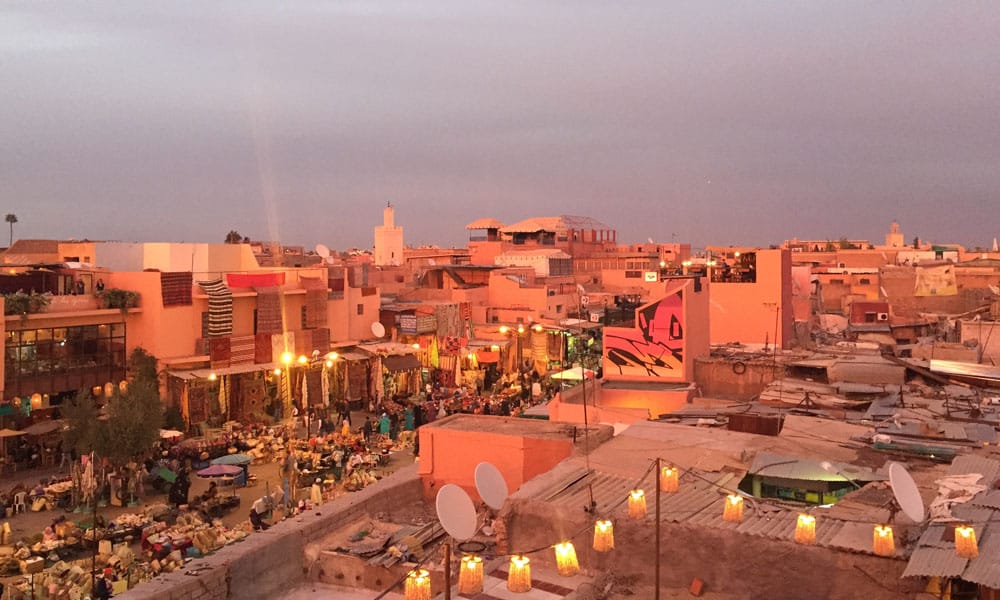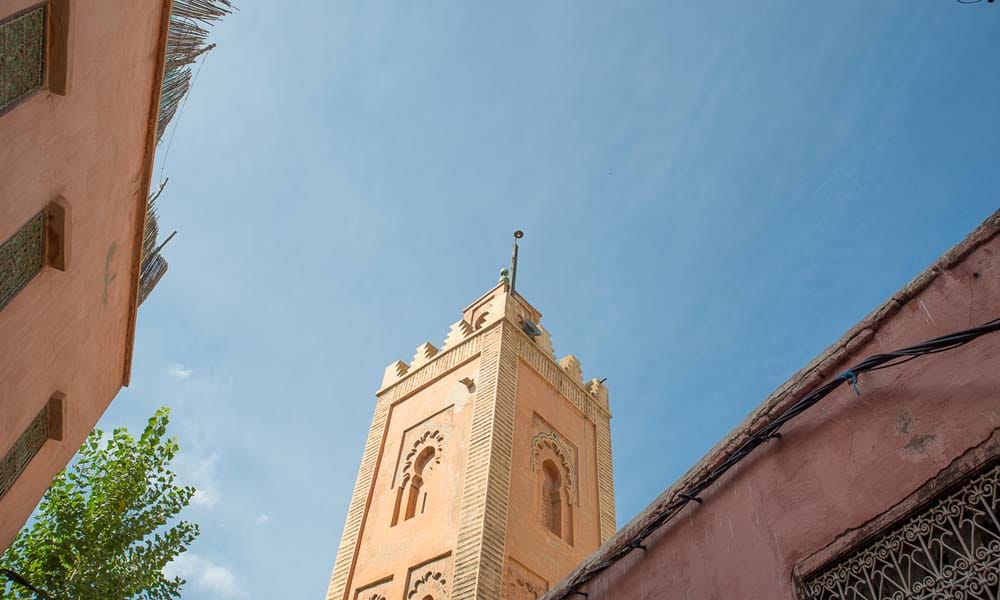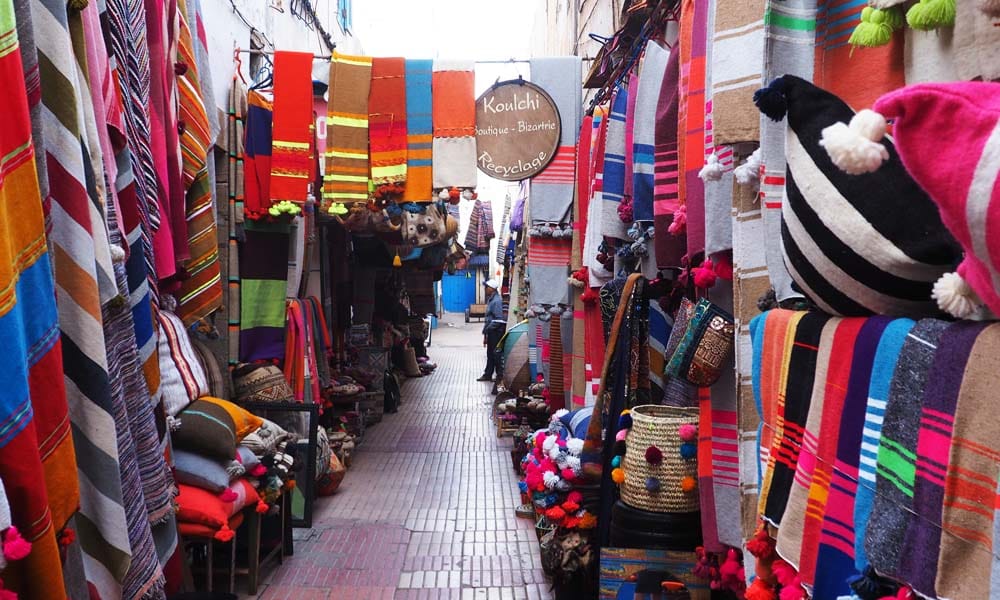FAQ
These FAQs are designed to provide you an overview of useful background knowledge and of what to consider when traveling with NOSADE to Morocco. Be perfectly prepared!
All about Yoga Retreats with NOSADE
What does Retreat mean on a trip with NOSADE
Accept what is. Escape daily routines, find inner peace, inner balance and inner tranquility. Morocco will challenge you to do so – with all its sounds, smells & (for us Westerners) sometimes unusual manners. We encourage you to open up for all those impressions.
Two daily Yoga and meditation sessions in Morocco’s mystical surroundings will be accompanying and supporting this experience.
We are traveling in small groups not exceeding a number of 12 participants. We are doing so because we want to ensure a very personal travel and retreat experience for our Yogis, dealing individually with and support everyone and to meet our own claim of a silent tourism. Or retreats are open for yogis of all levels, also beginners!
Beginners & advanced students of yoga
Both types of students, the beginners as well as the advanced, are equally welcome to join. Our experienced yoga teachers are focussing on your individual needs and level of experience. Most of our trips offering the possibility to either improve your practice or even try yoga for the first time.
Our teaching styles range from Anusara, Hatha, (Power-) Vinyasa Flow, Iyengar to restorative and Yin yoga. NOSADE is mainly teaching Yoga styles with a focus on biomechanical movement and health while practicing skillfully and well alined.
Yoga mats and all other necessary Yoga equipment will be provided by NOSADE. Of course, you can also bring your own yoga mat with you. Please just let us know upfront so that we can calculate accordingly.
Participation in yoga sessions
Participation in all our yoga sessions is of course optional. Should there be one day you don’t feel comfortable in practicing yoga or joining the group you are more than welcome to just enjoy yourself. It’s your vacation!
Arrival and departure is usually also 1 day later or earlier possible. Please talk to us – we create your own individual package tailored specifically to your needs. Please note that the flight tickets are not included in the price.
Being accommodated in single rooms is possible with subject to surcharges as far as we know it in time and can prepare ourselves. In the desert camp we usually can’t provide a single room because the place is limited with tents.
Morocco is generally considered a bread-loving nation. It is served as the very basis of every meal. Additionally, traditional urban Moroccan cuisine makes use of meats. That does, however, not mean that Moroccan food is not healthy, as plenty of vegetables are served with every meal. In poorer, more rural areas meat is considered a luxury and is served only in the smallest of portions – if at all. Moroccans love different variations of omelette, which you should definitely give a try. In addition to famous Couscous, Moroccans enjoy a great number of Tajine variants, all prepared in traditional earthenware pots.
For breakfast Moroccans love homemade sweet jam and marmalade on freshly baked bread and pastries.
On our travels we strive to provide healthy supplements in addition to the traditional Moroccan cuisine that is generally very popular with our guests. Bread can easily be left out of almost any meal and even vegetarians and vegans can experience their share of Moroccan tastes, as long as they don’t demand too much variety.
We always strive to meet any nutritional demands or requirements.
Particular Nutritional Preferences
As Morocco is still a developing country without access to specialty products such as gluten free bread or lactose free milk, we ask that you understand that if there is a need for such products you will have to bring them yourself. Generally, anything but coffee or tea may be imported for personal consumption. Dairy products, bread, cereal etc. can be brought into the country without an issue.
Luggage should be light and functional.
It would be best if you packed clothes that could be worn layered and thus be easily adjusted. Such layers are particularly practical for our yoga classes, as we like to move our sessions to the rooftop terrace whenever the weather allows for it. As you are staying in authentic Moroccan homes, most of which feature traditional open roofs, wearing layered clothing will also come in handy during the day beyond our yoga classes.
The following lists will show you an overview about things you should not forget to pack:
For Marrakech Retreats:
- Refillable water bottle: We are providing filtered water in our Riad. To contribute to a sustainable environmental protection, please bring a refillable water bottle along.
- Scarf: Will protect you from the sun during the day and might keep you warm with the sunset
- Sun blocker
- Earplugs for snoring neighbors and the muezzin
- Disinfectant for the hands & hygienic wet wipes
For Desert Retreats:
- Scarf: Will protect you from the sun during the day and might keep you warm with the sunset
- Sun blocker
- Flashlight
- Travel hair dryer
- Tight footwear
- Swimwear + travel towel (some of our Partner Riads have a pool which might want to be used)
- Earplugs for snoring neighbors and the muezzin
- Wet wipes for a small refreshment during the day (especially advantageous in the desert)
- Disinfectant for the hands & hygienic wet wipes
- Power bank to reload your electronic equipment (especially advantageous in the desert)
Under the tab “medical travel advice” you will find a small recommended pharmacy for your suitcase.
Winter months (November-Februar)
For the months between November and February please pack warm clothes. We’d recommend bringing a down jacket, a warm wool hat & wool socks. Bring eventually even a hot-water bottle, when you tend to struggle with getting warm by yourself at night. Even it can be cold during this time, the sun can be quite strong. Therefore, we recommend to bring a sunscreen with a high protection factor and a scarf or hat that is protecting you from the sun in the daytime and helps to keep you warm at night.
In September and October as well as in April and May it can get quite hot in the day already which means temperatures around 30 degrees Celsius. For the day definitely, bring a sunscreen with a high protection factor and a scarf or hat that is protecting you from the sun.
In March you have to be prepared for strong desert winds from time to time. During a sandstorm, it is recommendable to stay in a fixed desert camp as the wind can cause great and unpleasant sand stirs.
For the Desert Retreat we can highly recommend traveling with a backpacker since we are changing venues quite a few times. Baggage to the 3 days desert trip is limited to 10kg per person since the dromedary cannot carry more than a person weight plus 10kg, the rest of the luggage can securely be stored in the hotel in Merzouga.
For the desert camp please bring a small towel, wet wipes, bug spray, a small torch or flashlight, sunscreen (SPF 30-50), as well as a powerbank for cellphone / camera and natural sea salt nasal spray when needed.
Morocco Tips & Tricks
Travelers from most Western countries (EU, North America, Australia) only require a valid passport for a stay of up to 90 days, valid for 6 months at the date of departure. Additional information can be found at the consulate websites of your specific country of origin.
There are no mandatory vaccinations for entering Morocco. The German Foreign Ministry recommends hepatitis A and, for longer stays in the region, hepatitis B, typhoid and rabies immunization.
Travelers should only consume bottled water and avoid swimming or bathing in bodies of standing water. Mosquito protection is recommended for stays at oases and near rivers or lakes. Medical care in Morocco is generally adequate, but does not comply with Western standards, particularly so in rural areas.
This is a list of medication, which you should not forget:
- Antibacterial hand gel
- Antidiarrhoeal drugs
- Paracetamol or Aspirin
- Anti-inflammatory drugs (eg Ibuprofen)
- Antihistamines (for hay fever and allergic reactions)
- Antibacterial ointment for cuts and abrasions
- Steroid cream or cortisone (for allergic rashes)
- Mosquito spray
- Sea salt / moisturizing nose spray
You can reach Merzouga, the door to the desert, by rental car or bus (CTM and Supratours operating overnight buses from Fez and a one day bus ride from Marrakech straight to Merzouga). Personal transfer can be arranged upon request. Please don’t hesitate to get in contact for recommendations, required tips or arrangements.
Easily discover Morocco by train, rental car, bus or shared rides in grand taxis for negotiable rates. Personal transfer can be arranged upon request.
Traveling with kids is great fun and easy to do. Moroccans are famous for being child friendly. Medical care is hardly everywhere accessible.
Morocco is generally considered as a safe destination, as crime committed against tourists are extremely rare (and severely punished by Moroccan law). However, you should always check your state department / foreign ministry website before traveling abroad.
Traveling to Morocco, especially to the desert, is recommendable between mid September till mid of May.
From November to February the temperatures in the daytime are around 20 degrees and thus pleasant for most western travelers. The nights can be very cold in these months and temperatures can go below 5 degrees Celsius.
In September and October as well as in April and May it can get quite hot in the day which means temperatures around 30 degrees Celsius. The desert nights in this time are at around very pleasant 15 to 20 degrees. Please notice below our recommended packlist for each month and retreat.
We recommend to either take your credit card and get money from the ATM. Or to bring cash with you that you change in the Medina / city center at Hotel Ali (it is easy to find and they always have the best rates) into Dirham or to go to any bank or change bureau in the city center. Avoid changing money at the airport due to mostly high exchange rates.
A 10% tip is customary in restaurants, 2-5 dirhams in taxis, 1 dirham per drink in cafes. Gratuities for the involved service staff of NOSADE is not included in our prices. It is customary to tip whenever you are pleased with the service. That pleases the staff and motivates them even more for kindness and good work performance.
The official language is Moroccan Arabic, indeed French is always taken as business language. Therefore use a little French, such as “Merci” or “Bonjour”, as it is widely understood and generally perceived as you making an effort. All natives of Morocco speaks Berber language, which is also the name of the folk. Nevertheless, everybody understands english so that you can use it.
Don’t miss out on spending the night in one of Morocco’s famously inspiring typical Riads, in a Kasbah or in a traditional Berber tent right in the middle of the dunes in a desert camp. Here you can find a detailed list with all our chosen partner Riads.
Limited public WiFis are available, but Internet cafes are plentiful. Besides, all our Partner Riads do have free WiFi access. In some places the signal might be a bit worse than in others.
- Ask permission before you take a Moroccan’s picture. In particular women and devout Muslims do not like being photographed
- Relax. Moroccan understanding of time and punctuality is fundamentally different from Western concepts. “Europeans have clocks, we have time”, as they say in Morocco
- Bring tissues when using bathrooms outside of Western-standard hotels. Moroccan bathrooms may often be unequipped
- Barter when buying from the souk. It is expected and will save you money
- Use a little French, such as “Merci” or “Bonjour”, as it is widely understood and generally perceived as you making an effort
- Drink bottled water to avoid diarrhea. Western stomachs are usually too sensitive for unfiltered or tap water
- Do not show too much skin. As conservative and Muslim people, Moroccans generally frown upon revealing outfits. This does not just apply to women, but also to men. Cover at least your shoulders and don’t wear shorts when you are in public. In the hotels and the desert camp, when practicing Yoga feel free to wear whatever you feel most comfortable with
- Do not sunbath in the desert as the desert sun in the winter is quite strong and our Western bodies are not used to it and it often leads to catching colds
- Do not accept, purchase or consume drugs. Do not let it fool you that hashish and marihuana are widely consumed and available in Morocco. Penalties are still harsh and the Moroccan police does enforce the law
Whatever situation you may find yourself in,
Moroccans are helpful and friendly people. So do not panic!



